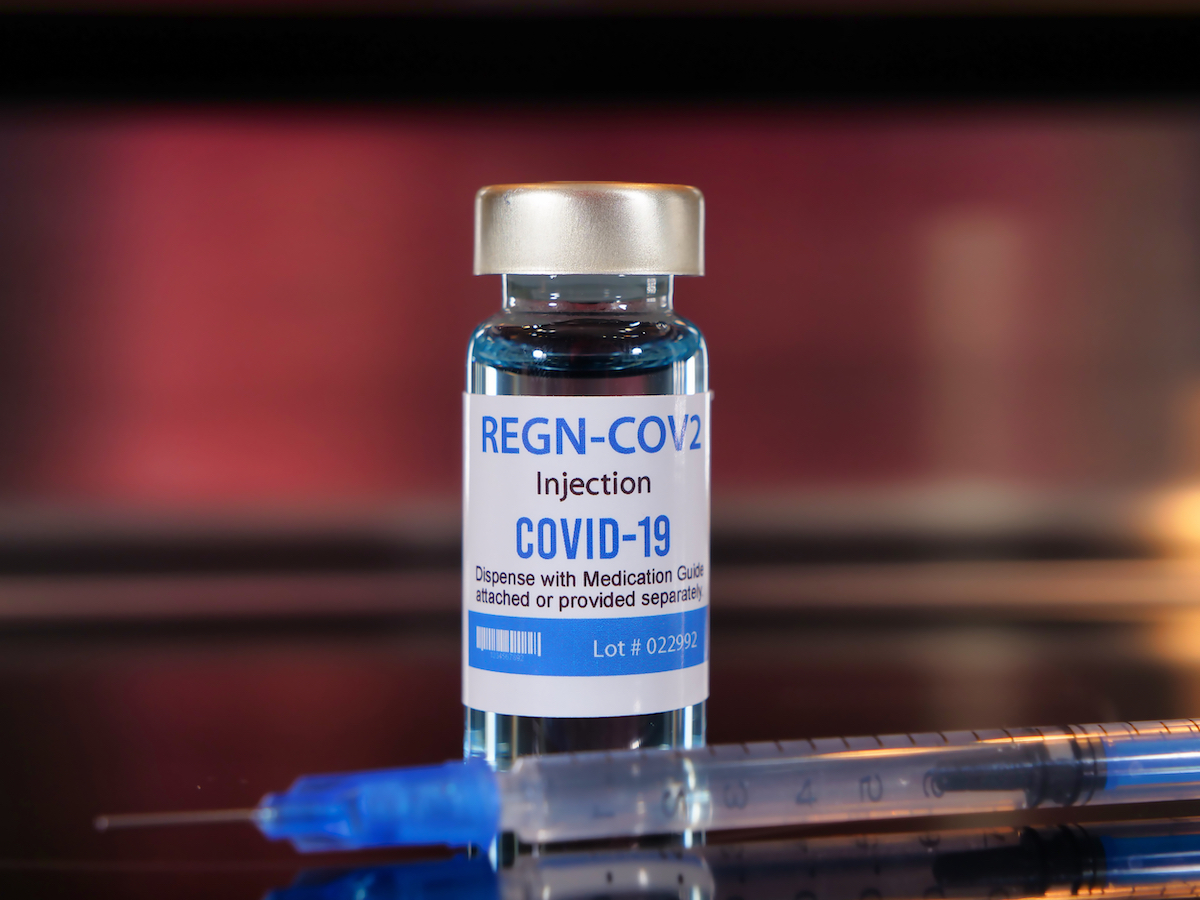Read the original article on Best Life. Many officials are worried about the U.K. variant because it’s more transmissible than the current dominant COVID-19 strain, spreading up to 70 percent more easily. The South Africa COVID strain, however, may be even worse in this aspect. British Health Secretary Matt Hancock told ITV News that the South Africa variant “seems even more easy to transmit than the new variant we’ve seen here [in the U.K.].” He added that it will be “harder to deal with than the U.K. variant.” And for more on where COVID is spreading in the U.S., check out This Is How Bad the COVID Outbreak Is in Your State. Studies have yet to define exactly how much more contagious the 501.V2 COVID strain is, but virologist Sunday Omilabu, director of the Centre for Human and Zoonotic Virology at the Lagos University College of Medicine and Teaching Hospital, told Al Jazeera that he’s observed that one person with the variant can spread the disease to four or five family members. That’s the highest rate of transmission recorded over the course of the pandemic.ae0fcc31ae342fd3a1346ebb1f342fcb Worse yet, the South Africa strain is also causing more severe illness in patients. “We have more people coming down with severe signs and symptoms,” Omilabu said. And for more severe COVID risk factors, check out The CDC Just Confirmed This Disorder Could Put You at Risk of Severe COVID. The U.S. Food and Drug Administration (FDA) approved two antibody drugs created specifically for COVID-19 in November. They are intended to try to help treat COVID positive patients who are at high risk of developing a severe COVID case. However, it seems that these drugs may not be particularly effective when it comes to the new South Africa COVID strain. “The South Africa variant is very concerning right now because it does appear that it may obviate some of our medical countermeasures, particularly the antibody drugs,” Scott Gottlieb, MD, a former FDA commissioner, told CNBC on Jan. 5. According to Gottlieb, this strain has “mutated a part of the spike protein” that antibodies bind to, making the drugs less effective. And for more up-to-date COVID news, sign up for our daily newsletter. John Bell, a professor who led the development of the AstraZeneca-University of Oxford COVID-19 vaccine, told Times Radio that while he believes the current COVID vaccines will still work against the U.K. strain, there is a “big question mark” about whether or not they’ll work against the South Africa variant. Like the antibody drugs, Bell says the reason this strain may render the vaccine less effective is because of how much the spike protein has been mutated by the South Africa strain. Shabir Madhi, PhD, the lead researcher for the Oxford University-AstraZeneca vaccine trials in South Africa, also told CBS News that this variant is the most worrying mutation of COVID so far—especially in how it may affect the vaccine. “It’s not a given that the vaccine will not work on this variant, but it is a consideration that the vaccine might not have the full efficacy,” Madhi explained. And for more on the vaccines, check out why The FDA Just Ruled You Can’t Do These 4 Things With the COVID Vaccines. The South Africa COVID strain has already overtaken the Eastern and Western Cape of South Africa, according to BBC. But it’s also made its way into four different countries: Austria, Norway, Japan, and the U.K. However, it’s likely to be in even more countries. Simon Clarke, an associate professor in cellular microbiology at the University of Reading, told The Sun that while standard PCR tests can identify the U.K. strain, genetic sequencing has to be used to identify the South Africa strain—but only 10 percent of PCR tests are being sent in for genetic sequencing currently. “They would only pick it [the South Africa variant] up if someone goes for the normal testing procedure because they have symptoms, and they hit that one in ten chance of their strain being sent for sequencing. That is the only way the authorities would know about it. That’s a slower way, and less refined way, of doing things because there would be a time lag,” Clarke said. “That’s why it’s more difficult to track.” And for more on COVID, discover just how This Common Habit Could Make Your COVID Risk Much Higher, Doctors Say.

